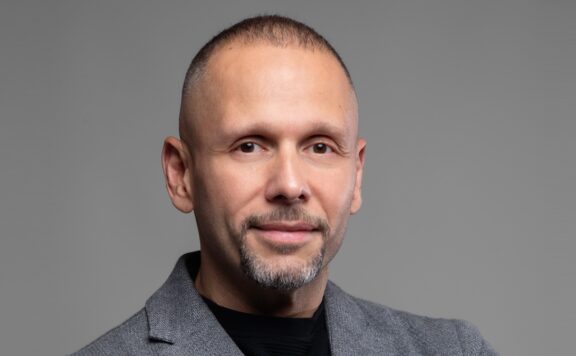My Startup World speaks to Talal Bayaa, the CEO and Co-Founder of Bayzat, about his company’s plans for 2018
What were the major technology and market trends in 2017?
The only factor consistent through all the trends is the rate of change created by technology. It is moving faster than anyone has ever predicted, making 2017 an eventful year for the tech sector. From Chatbots and deep learning to automation, technology has continued to impact every facet of life. User experience (UX), big data, and smart machines have proven big players in the business landscape this year.
The speed at which technology has advanced and upgraded has simply been overwhelming. Traditional business products have been reimagined as services, as organizations modernize core systems to create automation. Companies have explored more immersive and engaging ways to combine the physical world and digital systems, creating a new, mixed reality that’s more natural, intuitive and intelligent.
Intelligent apps which were introduced have had some of the functions of a human assistance making everyday tasks easier. As per a research report, UAE has one of the highest penetration of mobile apps in the world, with a significant proportion of the population having more than one mobile device. According to Global Media Insight, of the total of 9.58 million people in the UAE, around 8.81 million are active Internet users.
For couple of years, companies have been throwing away ratings, adding check-ins, developing agile goal systems, and making performance management much more data-driven and team-oriented. But this year has experienced tools in the market to provide an automation experience.
Do you believe any technology buzzwords from 2017 will really kick-off in 2018?
Artificial intelligence, immersive experiences, event-thinking and continuous adaptive security will create a foundation for the next years ecosystem. Machine intelligence is helping companies make better decisions, embed complex analytics into customer and employee interactions, and—with adoption of bots and robotic process automation—automate increasingly difficult tasks.
In the year 2017, cloud-based HR has become the rage. However, despite the rapidly maturing solutions, only about 40% of companies today use cloud HCM solutions, and hence it is given to understand that 2018 will see a migration of many companies. On the other hand, the concept of having greater flexibility at workplace has been brewing for a long time, but the administrative demands for implementing custom arrangements was a minefield, however considering the competitive nature of businesses, 2018 will make sure the organizations are ever more robust, to cope up with the breakneck speed.
How has 2017 been for your company and business?
This year has been phenomenal for Bayzat. The UAE government’s decisions of making employee health insurance mandatory has continued to promote growth in the sector and continues to fuel much of our business endeavours. We’ve had 350% revenue growth and our workforce grew from 12 to over 75 employees this year.
Originally, we had launched as a tech platform for financial advice and health insurance in the UAE, however, recently we diversified into automation of HR management.
What were your major achievements in the year 2017?
Adding a myriad of different features to our Bayzat Benefits platform has been one of the major highlights of this year. We’ve really pushed to get features including payroll, leave management, and employee data collection rolled out to help our growing number of corporate users.
We’re also responsible for insuring over 18,000 lives this November – which is an incredible milestone for Bayzat.
Did you enter / expand your operations into new markets in 2017?
Yes and no. We’re still focusing on refining our operations in the UAE. Our main concern is maintaining the calibre of expertise and attention our customers are used to. We have scaled, but are conscious of our ability to take on more than we can chew.
So, as we grow, as we have been doing reactively over the past few years, we have been looking for more opportunities to expand out workforce and scope of operation, but we haven’t braved a leap into additional countries.
How was the technology market in general in 2017? Was there any increase in business?
We are at an exciting, unprecedented time in technology – where the pace of change and innovation continues to accelerate. The race for competitive advantage has led businesses everywhere to embrace the new and cutting-edge technological advancements. This year, businesses have focused on Intelligent Enterprise and have followed the concept of ‘people first’.
Considering this, many developments have been attentive towards enhancing customer experience and efficiency. This more human technology is paying off for businesses, both in the workforce and in customer relationships. Areas of practice that once seemed impossible to digitize are fundamentally changing because of the impacts of AI, Internet of Things capabilities and big data analytics, which have many potentially positive implications for the society.
Many technologies, including robotics, virtual and augmented reality, 3-D printing, and artificial intelligence (AI), have now come into their own as power and speed increase while the cost of delivery goes down.
Automation is nothing new — at least on the business side. In the past, customer experiences with automated technologies primarily came in the form of those pesky automated customer service systems where they were forced to call every time they needed help.
However, with the technological advancements, automated customer service has only got better. Thanks to better AI and chatbots that understand the context a whole lot better than ever before. It’s not just businesses that are being transformed; technology is empowering people. This is just the stepping stone towards major changed in the tech sector.
How do you foresee opportunities for 2018?
Virtual Reality and Augmented Reality will revolutionize the computing experience and offer new ways to interact with technology as well as with one another. These technologies are in their early stages, but they will bring new levels of innovation to the computing experience over the years.
The digitization of health information will open new markets for health-related services. At every level of the healthcare system, digital technology will become more important for making diagnoses, deciding on the health insurance and its benefits, managing patient records, and so on.
On the other hand, data — data centres and data analyst will see a phenomenal demand. Right now, almost every company needs more staff to deal with these disciplines, especially data analysis. The world’s biggest companies are collecting terabytes or petabytes of data of all types every day that needs to be searched, analysed and used to enhance their ability to create products and services for their current or potential customer.
What sort of strategies do you have in place for 2018?
Lots of research and development, and to continue refining our platform, Bayzat Benefits. We are confident in our ability to provide insurance help and solutions for customers, so with that in a stable position we are definitely eager to put the gas on innovation by crafting new tech for our users.
Will you be investing more in terms of expansion of your market reach, channel programs and general marketing?
Ensuring good brand awareness is vital for us. Getting our name out there is critical for ensuring that our business flourishes. That being said, we aren’t shelling out money for ads across offline and online channels. We are very precise with our targeting and how we go about getting Bayzat’s name out there.





